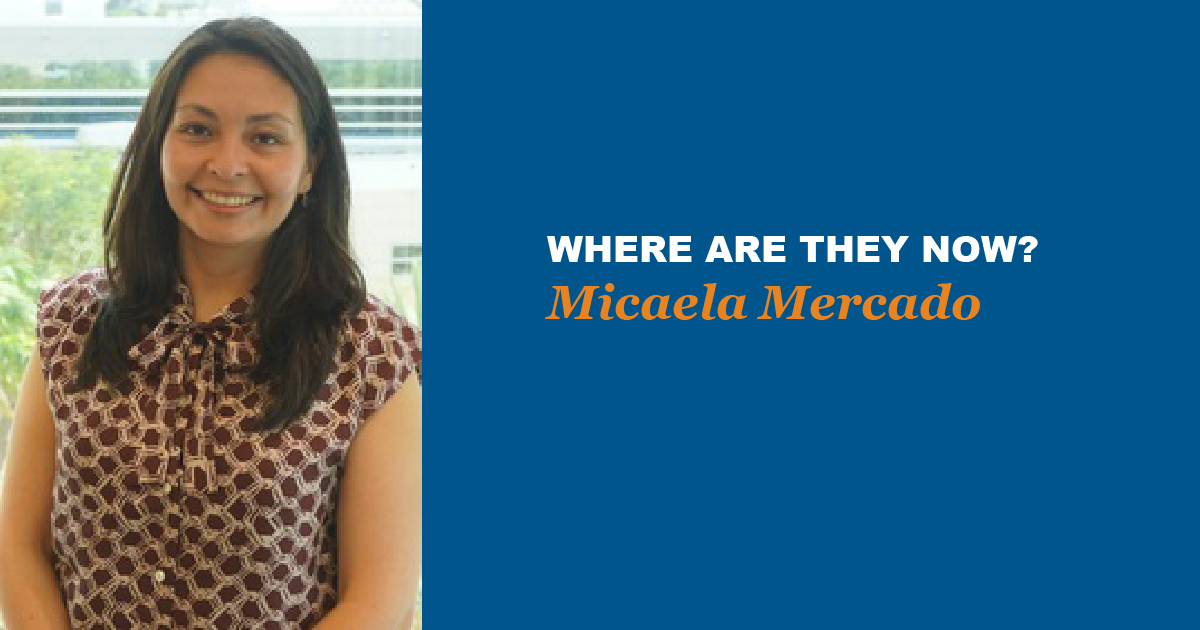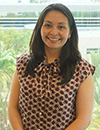A Q&A with Micaela Mercado, 2011 MDRC Doctoral Fellow

 This is the second in a series of Q&As with past participants in MDRC’s Judith Gueron Minority Scholars Program to hear their reflections on their experiences at MDRC and to learn what they’re up to today.
This is the second in a series of Q&As with past participants in MDRC’s Judith Gueron Minority Scholars Program to hear their reflections on their experiences at MDRC and to learn what they’re up to today.
About Micaela Mercado: After graduating from the University of North Carolina with a doctorate in social work, Mercado worked as the Director of Research at Zone 126, in Astoria, Queens, where she evaluated the organization’s implementation of the Harlem Children's Zone model. In 2013, she joined New York University as a Research Associate where she worked with behavioral health service providers. She was then appointed as an Assistant Commissioner at the NYC Department of Health and Mental Hygiene, where she oversaw several city-wide initiatives that focused on approaching mental health issues through a public health lens. Mercado is currently a visiting faculty member at Arizona State University, where she works with medical and behavioral health providers across health systems, such as hospitals, to design and test the efficacy and effectiveness of interventions focused on reducing health disparities among underserved populations.
How did the fellowship support your dissertation research? What were you able to accomplish during your tenure as a fellow?
The doctoral fellowship I received from MDRC allowed me to focus my energy on completing my literature review and conducting preliminary data analyses. This was extremely important because I needed to make significant progress during those months to stay on track for graduation. Both the fellowship and mentorship I received successfully allowed me to do this.
Describe a typical day as a doctoral fellow at MDRC.
I lived in New York City for several months during my fellowship at MDRC. My typical day involved commuting to the MDRC office, occasionally attending a team meeting related to my research area and discussing my dissertation with my mentor. I also set time to meet with several renowned researchers at MDRC to learn more about their career paths. Perhaps the most interesting days were when I was able to attend a presentation to learn about the diverse research areas at MDRC.
What advice do you have for students who are interested in applying for the doctoral fellowship at MDRC?
MDRC offers tremendous opportunities to learn from and meet with researchers leading large impact studies across the country. A fellowship at MDRC is an opportunity to expand your professional network and build professional relationships as you pursue your research and doctoral degree. This is immensely valuable!
What would you say are the benefits of being a doctoral fellow at MDRC?
MDRC has an extraordinary reputation across the country. As a research institution, it is a great environment for doctoral fellows to engage in research beyond their dissertation. As a doctoral candidate on the job market, your research and fellowship at MDRC will certainly be a talking point.
How did your time spent as a doctoral fellow at MDRC influence your professional pursuits or personal growth?
My experience at MDRC was instrumental in helping me navigate my interests after I graduated.
I learned a great deal about interdisciplinary research at MDRC, and how this work shapes social policy. Learning how these collaborations affect policy has influenced my professional goals and perspective as a researcher.






